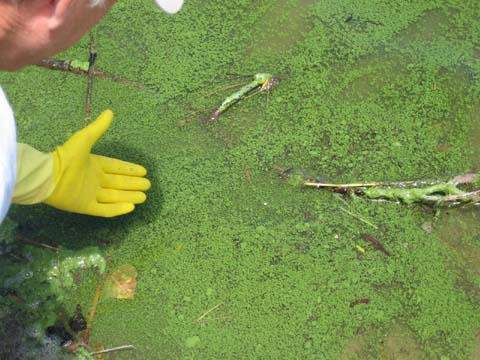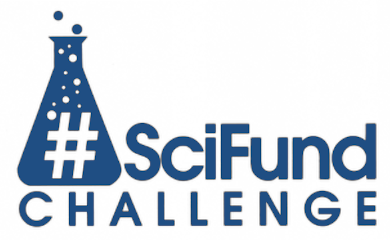Today’s featured #SciFund Challenge project is Domesticating Algae for the 21st Century by Steve Herbert.

Let me be honest: I love this project. Steve, a professor of plant sciences at the University of Wyoming, wants to better grow algae in a vat. Sounds boring, right? Think again.
The world’s human population just topped 7 billion people. How are we going to produce enough food and fuel for the earth’s growing population without exploding the planet? The answer might just lie in pond scum. As anyone who has a pool or birdbath knows, pond scum (which is a form of algae) can grow extremely rapidly without any encouragement at all. What if we could genetically engineer this fast-growing algae to produce biofuels? What about protein for us to eat? Suddenly, all of the pressure that we are placing on the earth’s ecosystems might just lift.
It’s not science fiction. Converting algae in vats into biological factories for anything we might need – from fuel to medicine – is a rapidly-developing field in biology. But there are lots of obstacles between us and our bright-green algae future.
That’s where Steve Herbert’s #SciFund research comes in. Many of the algae species that researchers want to use as biological factories live as single-celled organisms that float in the water. Collecting these organisms out of a growth chamber is slow and laborious, which is a big problem if you want algae-based products to be manufactured in mass quantities. But what if you could force these organisms to sink to the bottom of your growth chamber (for easy collection) on command? That would instantly solve this problem.
In fact, Steve Herbert aims to do precisely this, through genetic engineering of algae DNA. It is a very cool project that may have big implications for the future of the planet. Do check out Domesticating Algae for the 21st Century.


